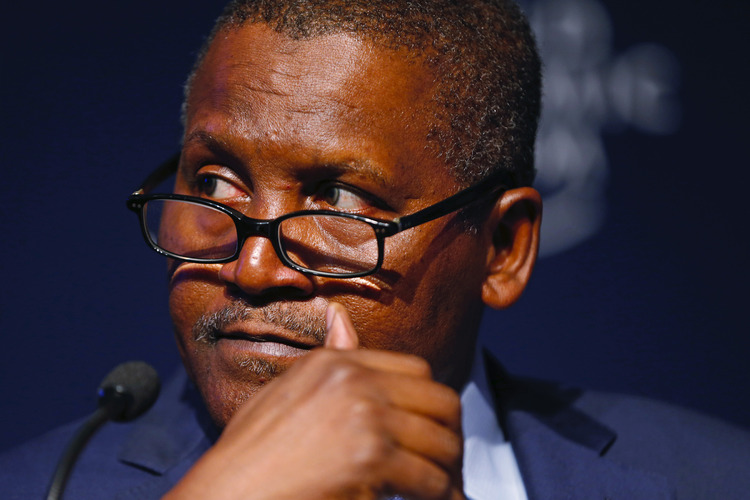Investment
Dangote to Triple Nigeria’s Gas Consumption

The President, Dangote Group, Alhaji Aliko Dangote, has said the gas pipeline being built by the company will triple the country’s consumption of the resource.
Dangote said the 1,100-kilometer pipeline would give the country three billion cubic feet of gas, compared to the nation’s current consumption of one billion cubic feet.
Nigeria is Africa’s top oil producer and largest holder of natural gas reserves on the continent, with about 187 trillion cubic feet of proven gas reserves and 600 Tcf of unproven gas reserves.
The country, which has the ninth largest gas reserves in the world, is only the 22nd biggest producer of natural gas as inadequate infrastructure and other challenges continue to hamper gas development in the country.
Speaking on the sidelines of a tour of the $14bn (2N2.8tn) refinery, fertiliser and petrochemical complex being built in Lagos, Dangote said, “We are also freeing up the gas which is right there in the ground.
“We are doing a gas pipeline through the sea, 550 km each for two lines, which is about 1100km from Bonny to here (Dangote Industries Free Zone, Lekki, Lagos). And that will give us three billion cubic feet of gas. At the moment today, the entire consumption of Nigeria is one billion cubic feet. So, we are going to triple that all at a stretch.”
He added, “We are going to evacuate through the gas pipeline. Anybody who has gas can tap into our gas pipeline and it will come down here and we will now connect to other areas going to the North, like Ajaokuta area, the west, Ogun and others.”
Nigeria depends on natural gas for about 80 per cent of its electricity generation, but the country suffers from gas supply shortfall to its power plants.
Globally, natural gas is increasingly becoming the fuel of choice for power generation, the Minister of State for Petroleum and Group Managing Director, NNPC, Dr. Ibe Kachikwu, noted recently at a conference in Lagos.
He said, “Given the current power generation challenge confronting Nigeria and its huge untapped gas reserves, the country cannot be an exception to this ongoing gas-to-power revolution.”